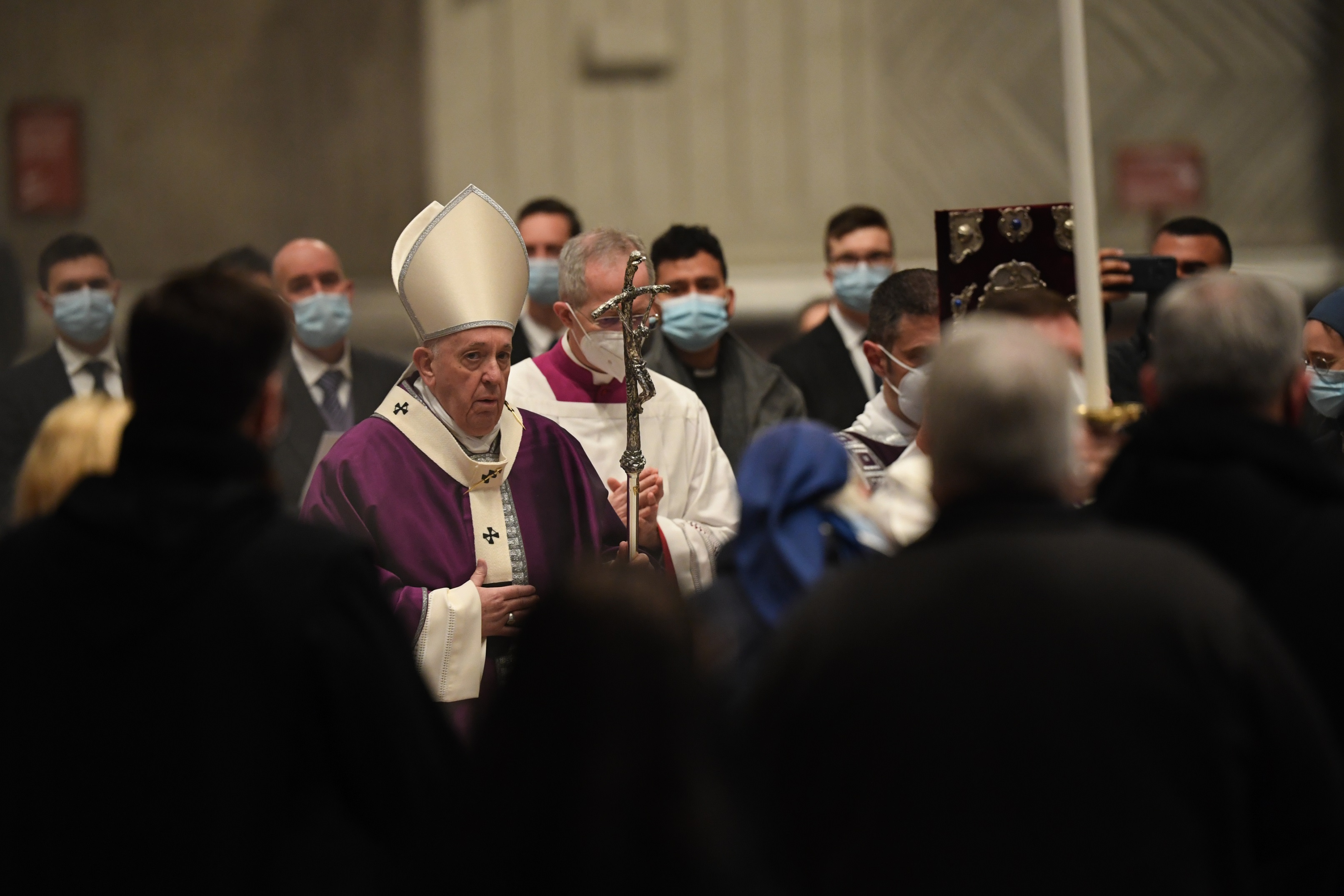 Cardinal Pietro Parolin attends an ordination at the Basilica of Sant’Eugenio in Rome, Sept. 5, 2020. / Daniel Ibáñez/CNA.
Cardinal Pietro Parolin attends an ordination at the Basilica of Sant’Eugenio in Rome, Sept. 5, 2020. / Daniel Ibáñez/CNA.
Vatican City, Dec 23, 2021 / 09:00 am (CNA).
From Thursday, people seeking to enter the offices of the Roman Curia must provide either proof of vaccination against COVID-19 or evidence of recovery from it.
The new rule was contained in a decree issued by Vatican Secretary of State Cardinal Pietro Parolin on Dec. 23.
The Vatican has required all visitors and personnel since October to show a COVID-19 pass proving they have been vaccinated, recovered from the coronavirus, or tested negative for the disease.
But in a Dec. 16 ordinance, Archbishop Fernando Vérgez Alzaga, president of the Pontifical Commission for Vatican City State, removed the recent negative test option.
He said that from Dec. 20, everyone working in the Vatican City State must provide evidence of vaccination or recovery.
Parolin’s decree confirmed that the same rule applies to the offices of the Roman Curia, the Holy See’s administrative institutions.
Throughout the coronavirus crisis, the Vatican has kept in step with Italy’s measures to contain the virus. The Italian authorities introduced a “Super Green Pass” on Dec. 6 for those who have been vaccinated or recovered from the virus.
The new decree, published in the Vatican newspaper L’Osservatore Romano on Thursday, applies not only to curial officials, but also to “external collaborators” and all other visitors.
Employees without a valid pass proving vaccination or recovery will not be allowed to access their workplace and will be considered “unjustifiably absent,” the text said.
Their pay will be suspended “for the duration of the absence, without prejudice to social security and welfare deductions, as well as family allowance.”
The decree said that prolonged unjustified absence would result in “the consequences foreseen by the General Regulations of the Roman Curia.”
Possible exemptions will be evaluated by the Secretariat of State in conjunction with the Directorate of Health and Hygiene of Vatican City State.
The decree said the measures were being tightened “in view of the continuation and worsening of the current health emergency and the need to take appropriate measures to counter it and ensure the safe conduct of activities.”
The decree was issued a day after the Vatican underlined its support for COVID-19 vaccines, recalling that Pope Francis described vaccination as an “act of love.”
Pope Francis recorded a public service announcement supporting vaccinations that was released in August in collaboration with the Ad Council.
In the PSA, he said: “Getting the vaccines that are authorized by the respective authorities is an act of love. I pray to God that each one of us can make his or her own small gesture of love, no matter how small, love is always grand.”
During an in-flight press conference from Slovakia in September, the pope said that “in the Vatican, everyone is vaccinated except a small group which they are studying how to help.”
Three Swiss Guards quit this fall after refusing to comply with the Vatican’s vaccine requirement and three other guards were suspended until they were fully vaccinated.
The new Vatican decree comes as countries around the world impose new restrictions aimed at slowing the spread of the omicron variant, which is believed to spread more easily than the original SARS-CoV-2 virus.
The measures have prompted protests in several European countries.
The Vatican Congregation for the Doctrine of the Faith said in its “Note on the morality of using some anti-COVID-19 vaccines,” issued on Dec. 21, 2020, that “vaccination is not, as a rule, a moral obligation and that, therefore, it must be voluntary.”
It added that Catholics who, for reasons of conscience, refuse vaccines produced with cell lines from aborted fetuses, “must do their utmost to avoid, by other prophylactic means and appropriate behavior, becoming vehicles for the transmission of the infectious agent.”
[…]






